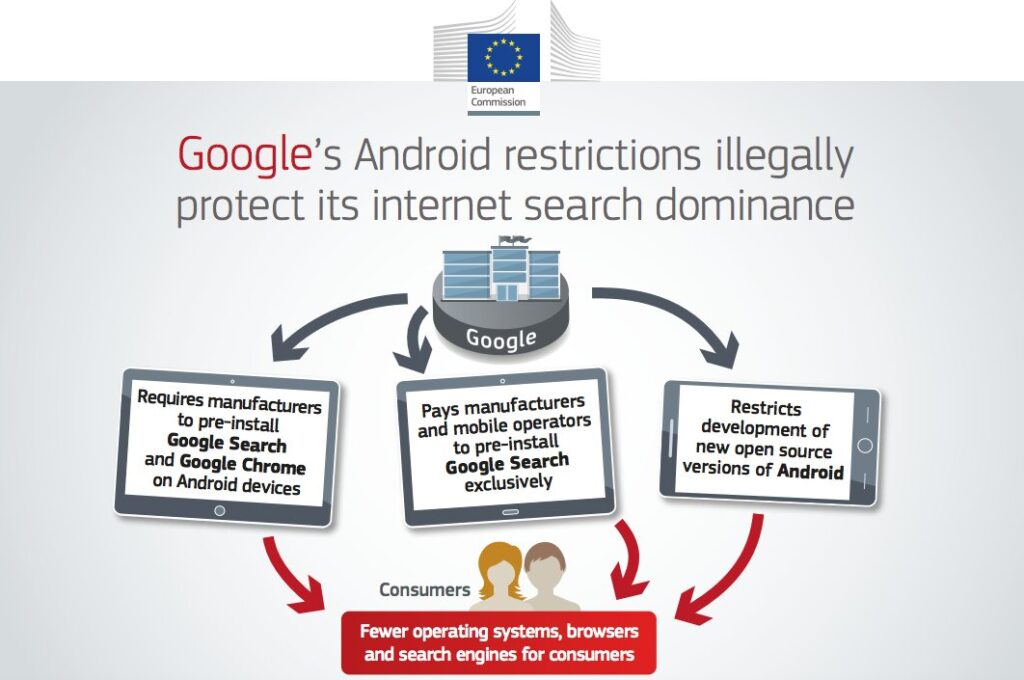In July 2018, the European Commission hit Google with a $5 billion antitrust fine for imposing illegal restrictions on Android device manufacturers to “cement its dominant” position in general internet search. The European Commission found three violations of EU competition law. The first, tying Google Search and Chrome to the Google Play in the licensing agreements. The second, paying manufacturers for exclusively pre-installing Google apps. Third, the company prevented manufacturers to build alternative versions of Android.

Google is now challenging this fine in the General Court of the European Union . If Google gets a positive ruling from the General Court, yes against all odds, the company wouldn’t only get more than $ 5 billion, but it would also be allowed to continue collecting data from Google Search and Chrome by exclusively pre-installing these apps in android devices.
Why collecting data from Google Search and Chrome is so important? Because the ability to collect users’ data through these apps would allow Google to know better its users and offer a more personalised service in vertical searches (such as restaurants and flights). Vertical searches is the next battlefield for Google and other companies. Think about this, why to redirect users to other websites when you can offer a better customer experience with your own services? It goes without saying, that the longer you keep a user in your website, the more revenue you can generate from advertisers (this is not the only metric though).
Given the current case-law on abuse of dominant cases, the European Commission seems a priori the favourite to win the case. Yet, Google’s chances to win may be higher than in the Intel, Qualcomm or Microsoft cases. One of the arguments that may be upheld by the court is the inclusion of Apple’s iOS in the market definition for licensable smart mobile OS. Yet, even if accepted, it isn’t clear if Google wouldn’t still be considered dominant.
The second argument is that tying Google Search and Chrome to the Play Store was necessary to offer the Android OS for free to manufacturers. Additionally, by offering Android for free, Google created new markets and foster competition. The court will likely have to carry out an in-depth analysis of a two-sided markets. Basically, the question to answer is, were these restrictions necessary to offer Android for free? If the answer is yes Google may have good chances to win the case. In the U.S., the Supreme Court adopted a very interesting decision in Ohio vs. American Express (2018) where the court also had to analyse a multi-sided market. In that case the court ruled that the restrictions imposed by AMEX to some retailers were necessary to offer cardholders a number of benefits. Thus, it concluded that not all horizontal restrictions, especially in two-sided markets, were per se anticompetitive.

We may have to wait still a few months (or likely years) to see what the court decides. Google, the European Commission and other third-parties are expected to submit their defences through 2019. Thus, an oral hearing before the court isn’t likely before 2020. Google challenged the decision in October 2018 and the European Commission is expected to submit its arguments in 1H19.
But what a Google’s win in court means to Facebook and Amazon? If Google can prove that the restrictions imposed on manufacturers in one market (apps) are necessary to benefit consumers and in another (free) market, it may favour companies in two-sided market analysis, including social media and e-marketplaces in ongoing and forthcoming investigations.
